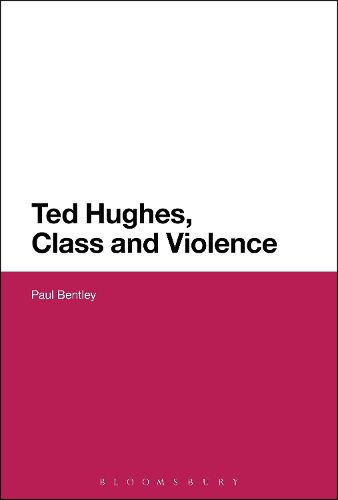Readings Newsletter
Become a Readings Member to make your shopping experience even easier.
Sign in or sign up for free!
You’re not far away from qualifying for FREE standard shipping within Australia
You’ve qualified for FREE standard shipping within Australia
The cart is loading…






Ted Hughes is widely regarded as a major figure in twentieth-century poetry, but the impact of Hughes’s class background on his work has received little attention. This is the first full length study to take the measure of the importance of class in Hughes. It presents a radically new version of Hughes that challenges the image of Hughes as primarily a nature poet, as well as the image of the Tory Laureate. The controversy over ‘natural’ violence in Hughes’s early poems, Hughes’s relationship with Seamus Heaney, the Laureateship, and Hughes’s revisiting of his relationship with Sylvia Plath in Birthday Letters (1998), are reconsidered in terms of Hughes’s class background. Drawing on the thinking of cultural theorists such as Slavoj Zizek, Terry Eagleton, and Julia Kristeva, the book presents new political readings of familiar Hughes poems, alongside consideration of posthumously collected poems and letters, to reveal a surprising picture of a profoundly class-conscious poet.
$9.00 standard shipping within Australia
FREE standard shipping within Australia for orders over $100.00
Express & International shipping calculated at checkout
Stock availability can be subject to change without notice. We recommend calling the shop or contacting our online team to check availability of low stock items. Please see our Shopping Online page for more details.
Ted Hughes is widely regarded as a major figure in twentieth-century poetry, but the impact of Hughes’s class background on his work has received little attention. This is the first full length study to take the measure of the importance of class in Hughes. It presents a radically new version of Hughes that challenges the image of Hughes as primarily a nature poet, as well as the image of the Tory Laureate. The controversy over ‘natural’ violence in Hughes’s early poems, Hughes’s relationship with Seamus Heaney, the Laureateship, and Hughes’s revisiting of his relationship with Sylvia Plath in Birthday Letters (1998), are reconsidered in terms of Hughes’s class background. Drawing on the thinking of cultural theorists such as Slavoj Zizek, Terry Eagleton, and Julia Kristeva, the book presents new political readings of familiar Hughes poems, alongside consideration of posthumously collected poems and letters, to reveal a surprising picture of a profoundly class-conscious poet.